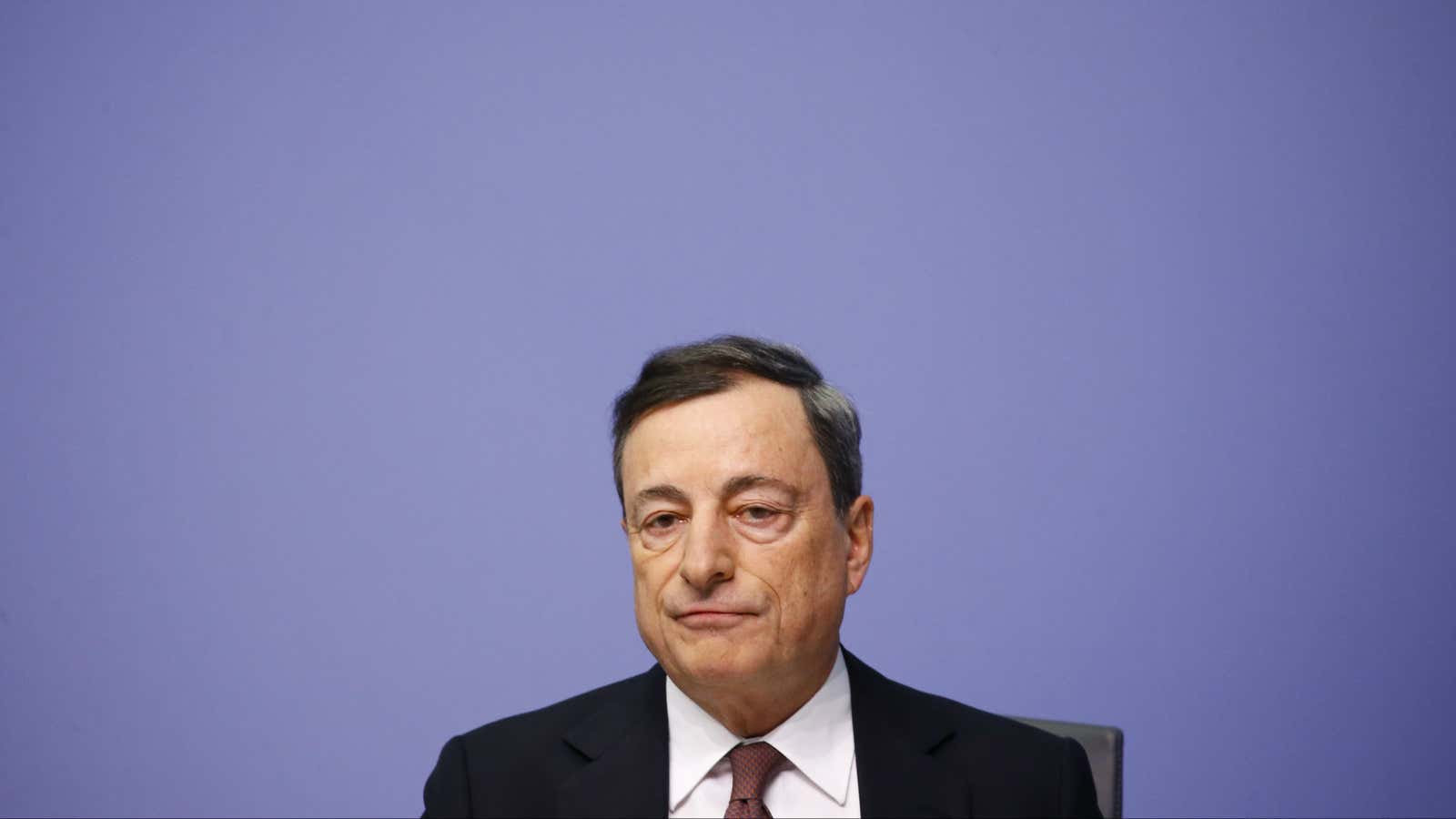The euro zone is having quite a year. The euro has gained about 14% against the US dollar so far in 2017, and is up against a wide range of other currencies, too. The euro zone’s economy is exceeding expectations and data today showed GDP rose 2.3% in the second quarter from a year earlier, slightly higher than in the US, when measured in the same way.
Sounds great, right?
Not for the European Central Bank.
After years of aggressive monetary stimulus to revive the euro zone’s economy, the success of the central bank’s efforts are causing their own problems. The measures were introduced, in part, to weaken the currency. Now, the prospect of stimulus being removed has encouraged traders to buy the euro. The higher the euro rises, the more likely it is that inflation, which has been stubbornly low for years, will remain subdued. To lighten countries’ debt loads and stoke economic growth, ECB officials would prefer that inflation rise closer to their 2% target, which would be helped along by a weaker euro.
Today, as ECB President Mario Draghi gave his regular press conference on the bank’s latest policy decisions, he had a particularly challenging task: to extol the success of the euro zone’s recovery, while convincing traders they should in fact sell the euro. Turns out it couldn’t be done.
Investors have been waiting for details from the ECB about how it will unwind its massive bond-buying program, now that the economy is strengthening. Instead, the strength of the euro has derailed this plan. Draghi said today that investors would have to wait until autumn (most likely October) for a decision on the future of the bank’s stimulus measures.
Meanwhile, ECB staff have increased their forecasts for euro zone growth, predicting a 2.2% increase in GDP this year, compared with an earlier projection of 1.9%.
But ECB policymakers are worried about what’s going on with the euro. Draghi is always reluctant to comment on exchange rates but today he said: “The recent volatility in the exchange rate represents a source of uncertainty which requires monitoring.” He added that the exchange rate was one of the main downside risks facing the region’s economy.
The strong euro is already having an impact. ECB staff forecasts for inflation were lowered for 2018 and 2019, primarily because the euro had appreciated so much.
It was Draghi’s birthday on Sunday. If he wished for a lower euro, traders weren’t in a giving mood.
